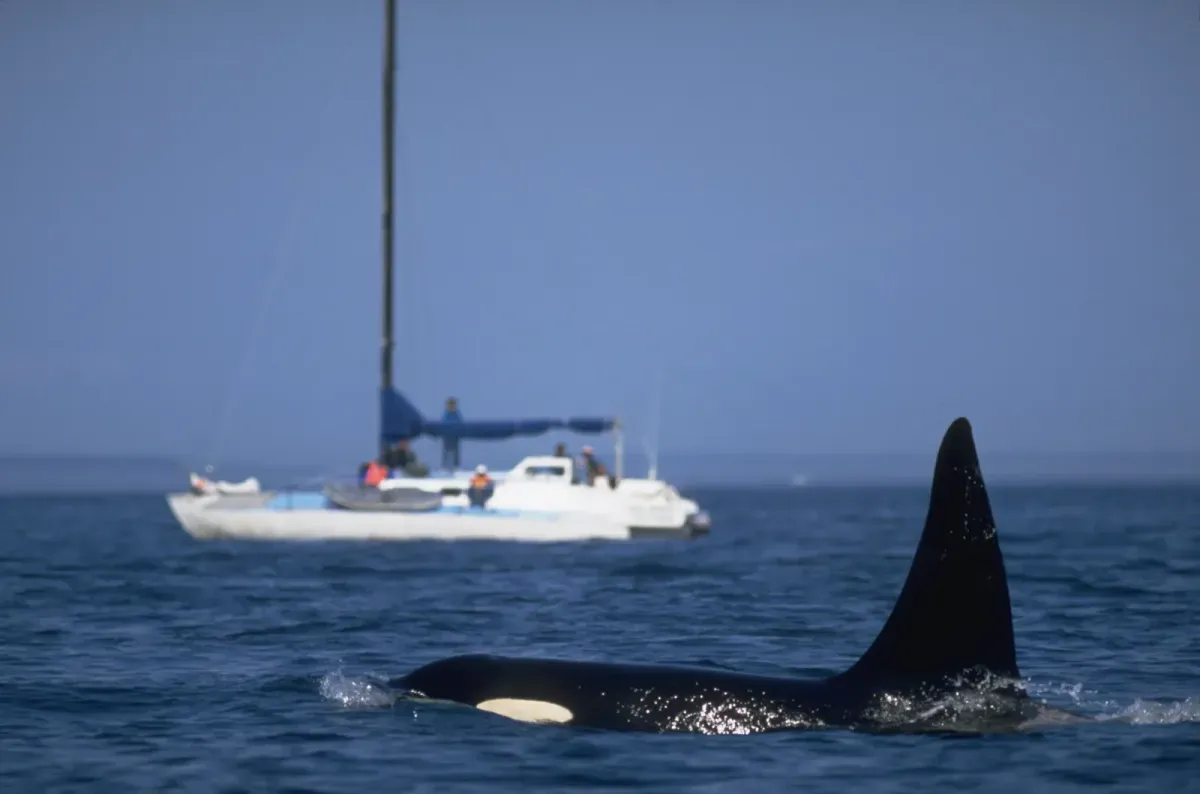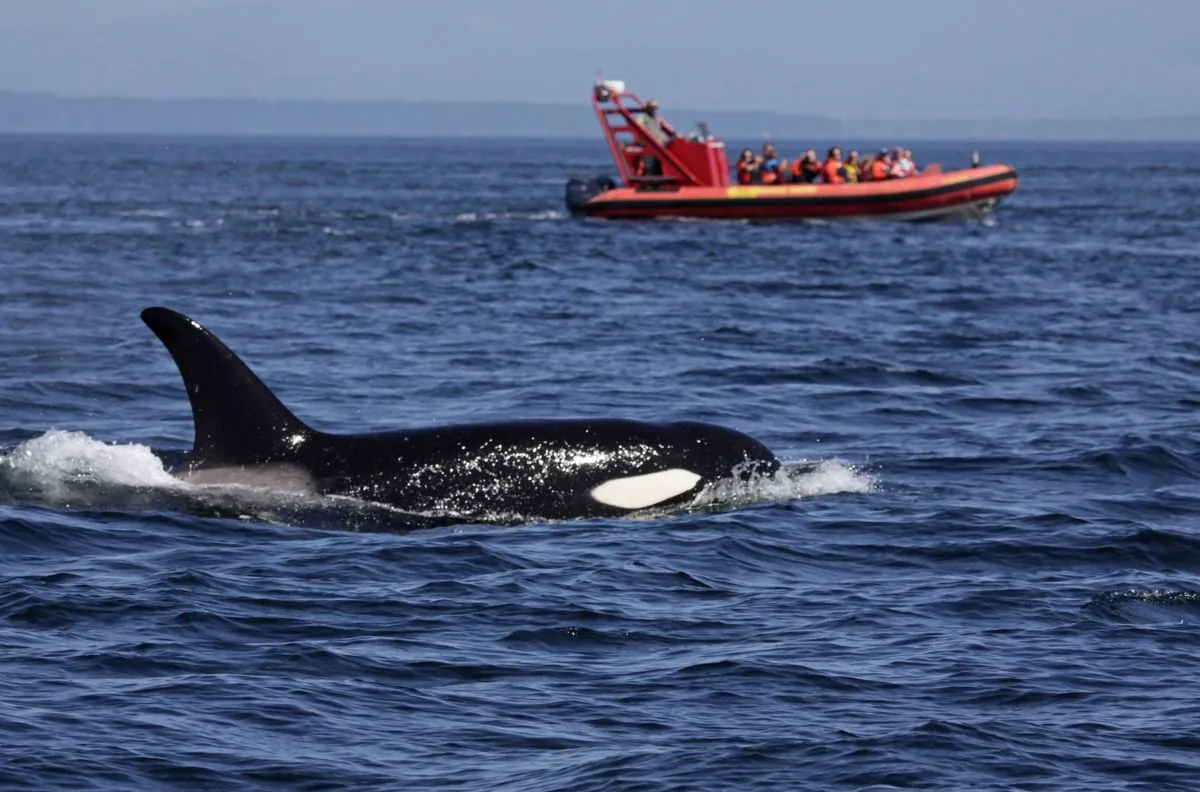Orca Pod Damages Sailboat off Spanish Coast, Crew Member Injured
A sailboat was rammed by orcas off northwestern Spain, damaging its rudder. During the rescue operation, a crew member was seriously injured. This incident adds to a series of similar encounters in the region.

On August 25, 2024, a sailboat encountered an unexpected challenge off the northwestern coast of Spain when it was rammed by a pod of orcas. The incident, which occurred near Cape Finisterre in Galicia, resulted in damage to the vessel's rudder and necessitated a rescue operation.
The sailboat, named Amidala, was crewed by two Belgian nationals who alerted maritime authorities shortly before 4 p.m. local time. The Spanish maritime rescue service responded to the distress call, initiating a towing operation to bring the damaged vessel to shore.
Orcas, also known as killer whales, are the largest members of the dolphin family. These intelligent marine mammals can grow up to eight meters in length and weigh up to six tons as adults. Despite their name, orcas are not whales but belong to the oceanic dolphin family, Delphinidae.
The rescue operation faced significant challenges due to adverse weather conditions. Winds reaching up to 35 knots (65 km/h) and waves as high as 3 meters (9.8 ft) complicated the towing process, which took more than five hours to complete. During this operation, one of the crew members sustained a serious hand injury and required evacuation by helicopter to a nearby hospital.
This incident is not isolated, as it follows a series of similar encounters between orcas and boats in the waters off Spain and Portugal. In May 2024, a particularly severe case occurred in the Strait of Gibraltar, where orcas sank a sailing yacht after ramming it on the Moroccan side.

Scientists are yet to reach a consensus on the reasons behind this recent behavior exhibited by orcas. These marine mammals are known for their intelligence and complex social structures. They live in stable matrilineal family groups and can be found in all oceans, from the frigid Arctic and Antarctic regions to tropical seas.
Orcas are apex predators with no natural enemies. They have a diverse diet that includes fish, seals, and even large whales. Different populations of orcas have developed distinct cultures and hunting techniques, which they pass down to their young through teaching.
While these recent incidents have raised concerns, it's important to note that orcas are generally not considered a threat to humans in the wild. They are known for their playful behavior, including riding waves and interacting with seaweed. However, some orca populations are endangered due to pollution and habitat loss, highlighting the need for conservation efforts.
As marine authorities and scientists continue to monitor and investigate these unusual encounters, boaters in the affected regions are advised to exercise caution and report any orca sightings or interactions to local maritime services.


































